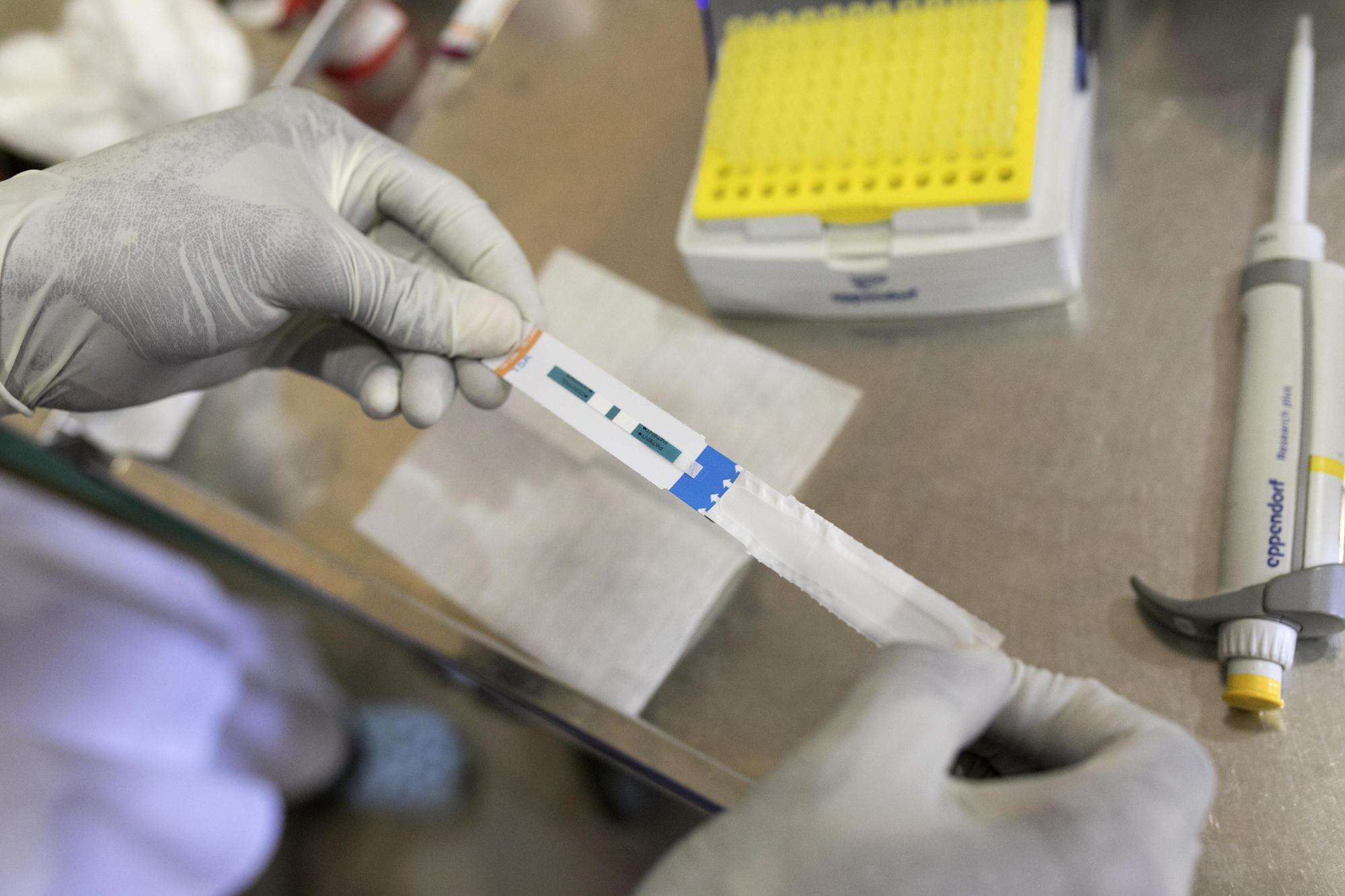NEW YORK/BRUSSELS/KIGALI, RWANDA, DECEMBER 2, 2019—Hundreds of thousands of people continue to die from advanced HIV, also known as AIDS, because countries are still ill-equipped to detect and treat people with advanced stages of the disease, according to a new report released today by the international medical humanitarian organization Doctors Without Borders/Médecins Sans Frontières (MSF). Delays in responding quickly to treatment failures and interruptions in treatment jeopardize recent progress in reducing the number of people dying from HIV and AIDS.
MSF calls on affected countries and donor countries to urgently deploy and fund recommended approaches to prevent, detect, and treat advanced HIV and AIDS at community level.
“In the past, the very sick patients we saw were those who did not know they had HIV,” said Dr. Gilles Van Cutsem, MSF’s senior HIV adviser. “Today we see more and more people who have been treated before but stopped taking their medication and fell seriously ill, or people whose treatment stopped working. There is no way the world will reach the UNAIDS target of less than 500,000 deaths from AIDS in 2020 without decisive action on dealing with retention to care, treatment interruptions, and resulting mortality.”
The report, No Time to Lose, analyzes 15 countries in Africa and Asia—Central African Republic (CAR), Democratic Republic of the Congo (DRC), Eswatini, Guinea, India, Kenya, Lesotho, Malawi, Mozambique, Myanmar, Nigeria, South Africa, South Sudan, Uganda, and Zimbabwe—and gives a snapshot of where they are in terms of policies, implementation, and funding to address advanced HIV, which killed 770,000 worldwide in 2018. Despite the existence of World Health Organization (WHO) guidelines since 2017 on advanced HIV, governments have been slow to align their national guidelines with them.
WHO guidelines recommend easy-to-use rapid tests to assess the status of people’s immune systems (the CD4 count), and to diagnose the most common and deadly opportunistic infections, such as tuberculosis (the TB-LAM urine tests), and cryptococcal meningitis (the CrAg test). These tests can deliver results in a matter of hours, helping people get on the appropriate treatment more quickly.
However, MSF found that rapid tests are almost never available at the community level, despite the fact that early detection can be the difference between life and death for many. This is important for people who already know their HIV status, as periodical retesting is critical to know if their treatment is still working. Not having these tests makes the global UNAIDS 90-90-90 targets (in which 90 percent of HIV-positive people know their status, 90 percent are on treatment, and 90 percent have a suppressed viral load) hard to reach.
MSF’s report shows that more than two-thirds of people with advanced HIV that are admitted to the MSF-supported hospital in Nsanje district in Malawi arrive already very ill and have been on antiretroviral (ARV) treatment before. At MSF’s Kinshasa hospital in DRC this figure is at 71 percent. Among these, more than one in four people will die because the disease was too advanced when they reached the hospital. These deaths could have been prevented if they had been tested earlier to check the status of their immune systems and how well they were responding to their treatments.
Since MSF made the rapid tests available in health centers in Nsanje district, the number of deaths at the hospital has decreased from around 27 percent to less than 15 percent.
Only eight of the 15 countries surveyed in the report use rapid TB-LAM to test advanced HIV patients. They are used in hospitals in South Africa, and roll-out at community level is expected. Malawi plans to roll the tests out to 230 health centers in 2020, and pilot programs to introduce the test are being launched in Lesotho and Nigeria. Another pilot was recently completed in Kenya before a possible national roll out of the test.
Only a third of the countries recommend using the rapid test (CrAG test) for cryptococcal meningitis—which accounts for 15-20 percent of all advanced HIV-related deaths—for HIV-positive people with very weak immune systems. These countries include Kenya, Mozambique, South Africa, South Sudan, Uganda, and Zimbabwe, but most of them have not yet implemented that recommendation on the ground.
Currently, the TB-LAM and CrAG tests at the primary healthcare level are only available in MSF-supported health centers in all 15 countries covered in the report.
“We all need to accept that the job is not over once people are on treatment and doing well,” said Florence Anam, MSF’s HIV/TB advocacy coordinator and lead author of the report. “We have to be there for people for the whole treatment journey, which means people’s entire lives. We will not end the ravages of HIV by digging more graves, but by doing all we can to keep people healthy, no matter where they live and what their life circumstances are. They must be supported mentally and medically as close as possible to where they live.”
Some countries like Lesotho, Malawi, Kenya, and Uganda have started making initial progress in advanced HIV guidelines implementation, but they will need to be supported financially. Donors should prioritize approaches to reduce mortality linked to AIDS.
Rapid tests at local clinics desperately needed to prevent AIDS deaths

Guinea 2018 © Albert Masias/MSF



